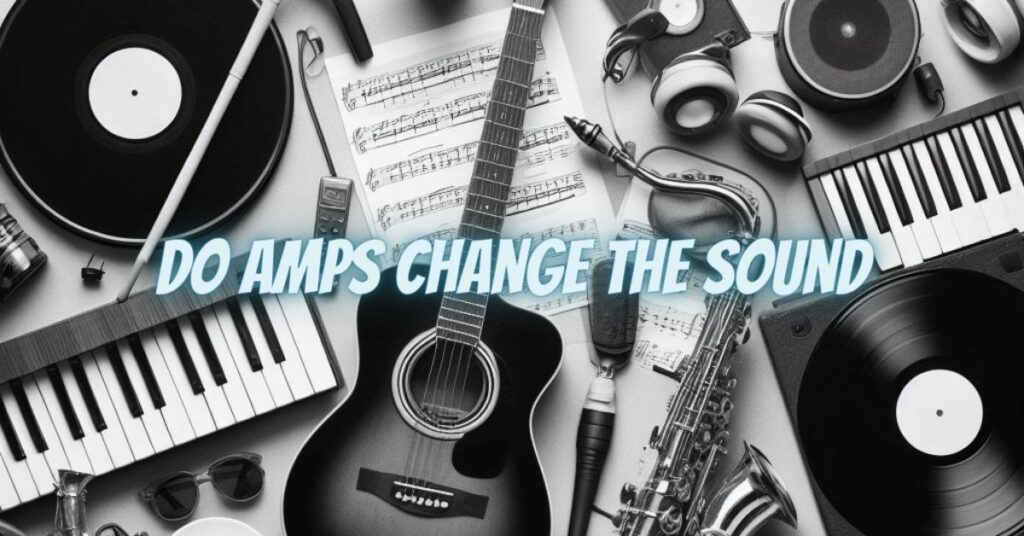Yes, amps definitely change the sound. In fact, they are one of the most important pieces of equipment in any audio system. Amps take the weak electrical signal from your source device and amplify it so that it can drive your speakers or headphones.
But amps do more than just make your music louder. They also affect the tone and timbre of the sound. This is because amps have different frequency responses and distortion characteristics.
Frequency response
The frequency response of an amp is the range of frequencies that it can reproduce accurately. Most amps have a frequency response that extends from 20 Hz to 20 kHz. This is the range of human hearing, so it is important for amps to be able to reproduce this entire range of frequencies accurately.
However, not all amps have the same frequency response. Some amps have a more linear frequency response, while others have a more pronounced bass or treble response. This can affect the overall tone of the sound.
Distortion
All amps produce some distortion. Distortion is the introduction of new frequencies into the signal that are not present in the original signal. Distortion can be caused by a number of factors, including the type of amp, the operating voltage, and the output level.
Some types of distortion, such as harmonic distortion, are considered to be more euphonic and can actually improve the sound quality. Other types of distortion, such as crossover distortion, are considered to be more unpleasant and can degrade the sound quality.
How amps change the sound
Amps can change the sound in a number of ways. Here are a few examples:
- Frequency response: Amps with different frequency responses can produce different tones. For example, an amp with a boosted bass response will produce a warmer and more bassy sound.
- Distortion: Amps with different distortion characteristics can produce different tones and textures. For example, an amp with a high harmonic distortion content will produce a more distorted and aggressive sound.
- Output impedance: The output impedance of an amp can affect the frequency response of the speakers. For example, an amp with a high output impedance can cause a speaker to roll off the highs prematurely.
- Damping factor: The damping factor of an amp is a measure of its ability to control the movement of the speaker cone. An amp with a high damping factor will produce a tighter and more controlled bass sound.
Choosing an amp
When choosing an amp, it is important to consider the type of music you listen to and the type of sound you are looking for. If you listen to a variety of music, then you will want an amp with a linear frequency response and low distortion. If you listen to bass-heavy music, then you may want an amp with a boosted bass response. If you play guitar, then you may want an amp with a high harmonic distortion content.
It is also important to consider the output impedance and damping factor of the amp. If you are using high-impedance speakers, then you will need an amp with a low output impedance. If you are looking for a tight and controlled bass sound, then you will need an amp with a high damping factor.
Amps are an essential part of any audio system. They not only make your music louder, but they also affect the tone and timbre of the sound. When choosing an amp, it is important to consider the type of music you listen to and the type of sound you are looking for.


